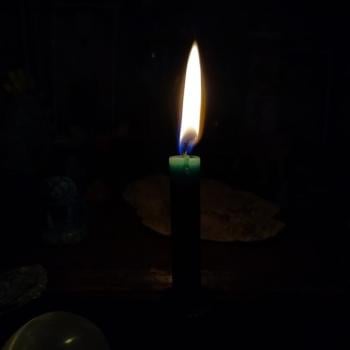 By Sumbul Ali-Karamali
By Sumbul Ali-Karamali
"I think you will see your child in heaven," I say to my friend. "Human beings begin with a presumption of goodness in Islam, and hell is only reserved for those who commit crimes. We will all be held accountable on the Day of Judgment, and then you will join your son in heaven."
In Islam, even criminals may be pardoned and sent heavenward, because God's mercy and compassion are infinite and, significantly, not limited to Muslims. Surah 2:62 reads:
The Muslims, the Jews, the Christians, and the Sabians, any who believe in God and the last day and do good have their reward with their Lord. There is nothing for them to fear; they will not sorrow.
This is remarkable for a 7th-century religious text: the Qur'an deliberately undermines the exclusivity of its own message in order to allow non-Muslims into heaven.
Islamic perceptions of heaven and hell are similar to Judeo-Christian perceptions. But, are Qur'anic references to heaven and hell meant literally or metaphorically? Hell is fiery; heaven is abundant with gardens and food.
And virgins. As a woman, I am convinced that the virgins must be metaphorical! The Qur'an was addressing 7th-century patriarchal Arab men in a way they would understand.
I believe in heaven and hell, but I believe the details are not necessarily meant literally. Religious belief is often a matter of choice, and comfort is a legitimate motivator. Therefore, I choose to believe that I will see my loved ones in heaven.
Read more from: What Really Happens When We Die?
Sumbul Ali-Karamali is an attorney with an additional degree in Islamic law and is the author of The Muslim Next Door: the Qur'an, the Media, and that Veil Thing.
9/20/2010 4:00:00 AM




